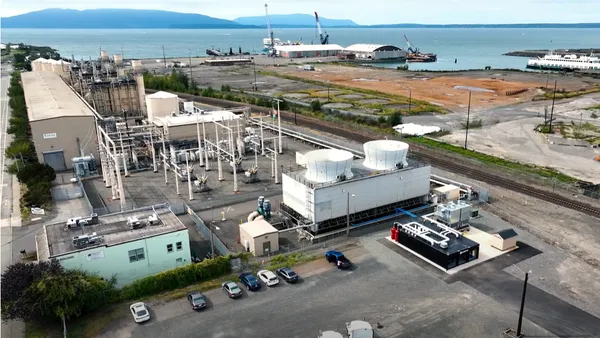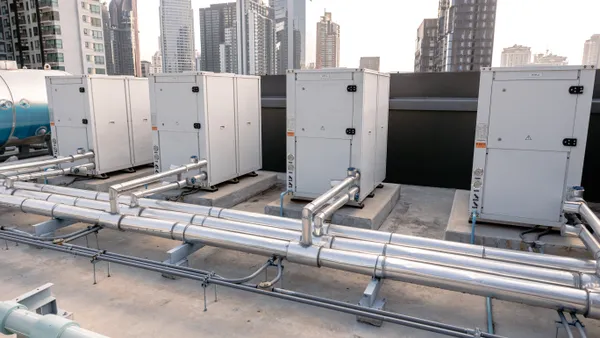Dive Brief:
- The Hotel Sustainability Benchmarking Index 2024 found a general increase in energy and water consumption among participating hotels for the first time in 10 annual cycles, according to researchers at Cornell University who produced the report.
- The cycle published this year studies hotel energy use from 2021 to 2022, a time period associated with hotels’ recovery from the “anomaly of 2021, where occupancy levels were lower than usual,” the report said.
- Compared to 2019 levels, energy consumption generally decreased per square meter — but increased per occupied room. The report’s authors, Eric Ricaurte and Rehmaashini Jagarajan, attribute this to “the lag time between the resumption of hotel operations and the return of travelers.”
Dive Insight:
While declining energy and water consumption over floor area could indicate an overall increase in hotel resource efficiency, the increase in energy consumption per occupied room could be due to an increase in the footprint of each occupied room, the report reads.
But when compared to 2019, there has been a general decrease in greenhouse gas emissions and energy consumption per square meter. “These figures suggest a positive trajectory in hotel environmental performance over the longer term,” the report said.
Overall, resorts and highly rated hotels fared better in terms of greenhouse gas emissions and energy performance, the report found. Between 2021 and 2022, the report noted, limited-service hotels had the highest increase in greenhouse gas emissions and energy consumption. Full-service resorts had the smallest increases.
“The disparity in performance between higher and lower star-rated hotels could be attributed to resource availability, with higher-rated hotels having more funding for sustainability efforts,” the report read.
Last year’s Hotel Sustainability Benchmarking Index found that upper upscale hotels outperformed luxury, upscale and upper midscale hotels in terms of reducing greenhouse gas emissions and energy consumption. And though upper upscale hotels typically feature high-end amenities — suggesting that they would consume more energy — researchers concluded that their performance demonstrates that it’s possible to prioritize sustainability without sacrificing service.
Hotel organizations that participated in this year’s study include Accor, DiamondRock Hospitality, Hilton, Hyatt Hotels Corporation, Marriott International, Wyndham Hotels & Resorts Mandarin Oriental Hotel Group and others.














